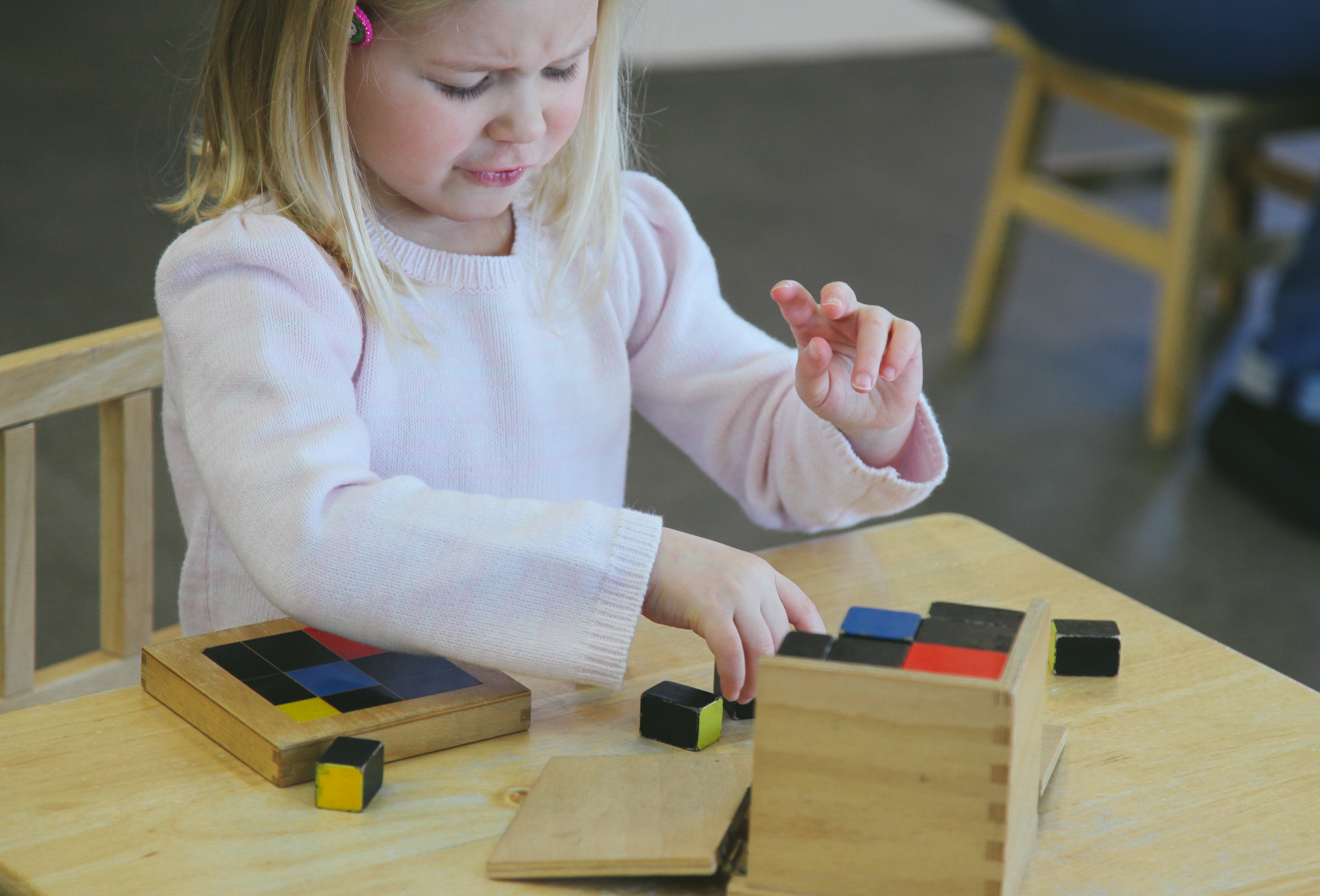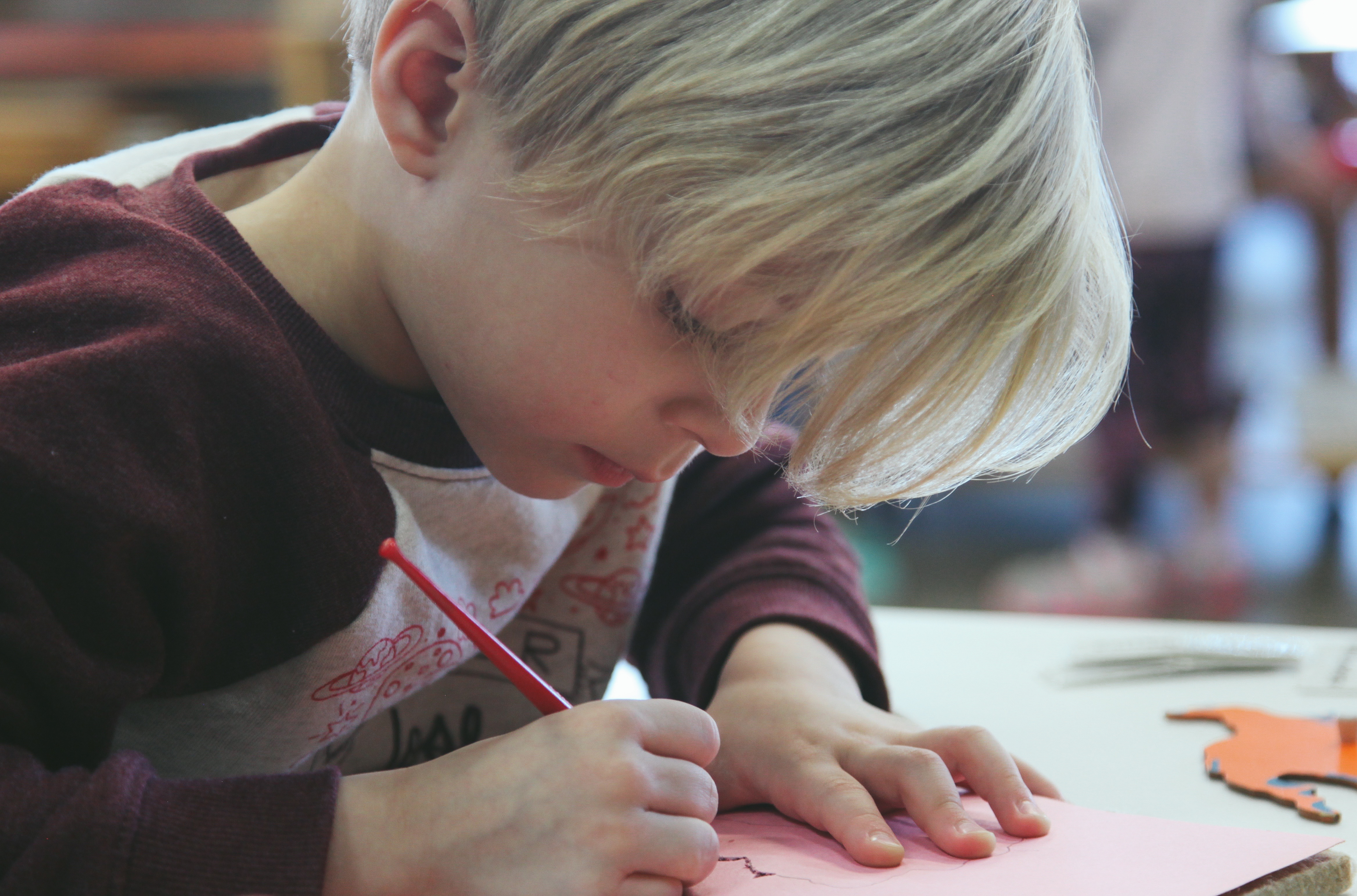Montessori is known for independence. It’s more than a buzzword, it’s a way of life. We’re constantly striving for independence, though it is a rather fraught word. We think of independence as “I don’t need you,” which is heartbreaking when it’s your child, your most precious. We’re asked, if they’re working on independence all day, will they still want to play with me when they come home?
A resounding, unwavering YES.
In Montessori, independence doesn’t come because we have to, because we should, because “rub some dirt in it, no crying in baseball,” because you have to. In Montessori, independence comes because of support and love.
Children are constantly growing toward independence, and so often we rejoice in it without realizing this is what is happening. A baby starts to feed herself, pulls to standing and takes those first cautious steps, starts talking (so often “no” comes first, which isn’t the least bit ironic), and we delight in their independence. We share on social media, we call our own parents, our dearest friends, our village from whom we draw strength. All these acts are a movement toward independence, but they are only possible because of our love, first. Learning takes courage, and children need our encouragement, our model, our cheerleading in order to first put hand to mouth, to reach out and walk toward, to sometimes literally catch when they fall, to respond when those babbles become words.

It is the same in the classroom. Children are moving toward independence, learning to fasten their coat or to clean their spill, learning to read to themselves or to count out their own snack. It’s only possible when you know you cannot fail. There will be no shame or punishment if you make a mistake, there will be friends and adults here to help you. It’s another moment of beauty about the Mixed-Age Classroom — I can help you, because I’ve been here before. It sure stinks when you knock over your bucket, but let’s go find the spill cloths together. That chain used to be hard for me too; this one is 42, not 24. Wow, you know all your sounds! When I was four I didn’t know all my sounds!
The knowledge is passed along like mentors, and the goal is to help you thrive. Your mentor doesn’t want you to fail, nor are they disappointed when you grow — that is the goal. In the same way, newly-minted grandparents are not saddened that their children no longer need them, for every stage demands different needs, but rather they’re giddy with anticipation for the sleepless nights, the pulled out hair, the tears, the break-you-open love, the abundant joy, the endless laughter their own babies are about to experience.
Parenting is mentorship, plus a security blanket of limitless love. It’s being in your child’s corner, getting them ready for the next round. It’s coaching and encouragement and accountability. The independence that happens before and after the Montessori classroom is only possible because of this love. When we are loved and supported, we can be vulnerable and brave, we can make the mistakes where big learning and big growth happen. When we are loved, we are independent.

The biggest adventures happen, and when we are ready to share them we do so with the people who think of us as their biggest adventure, our parents. We take a breath and jump in, because we know nothing catastrophic could really happen, we are safe and we are loved, and we will figure it out together when we bounce back up to the surface. We make mistakes and come back to the people and the place where everything made sense, and we’ll figure it out together.
When we are little, we need our parents for everything — to carry us and to dress us and to feed us. As we grow, as we become independent, we need them for those things less, but the love is still there, and the need has grown — to encourage us, to support us, to play and talk with us, to challenge and hold us accountable. The path toward independence isn’t a path away from your family; it’s a path we walk together.